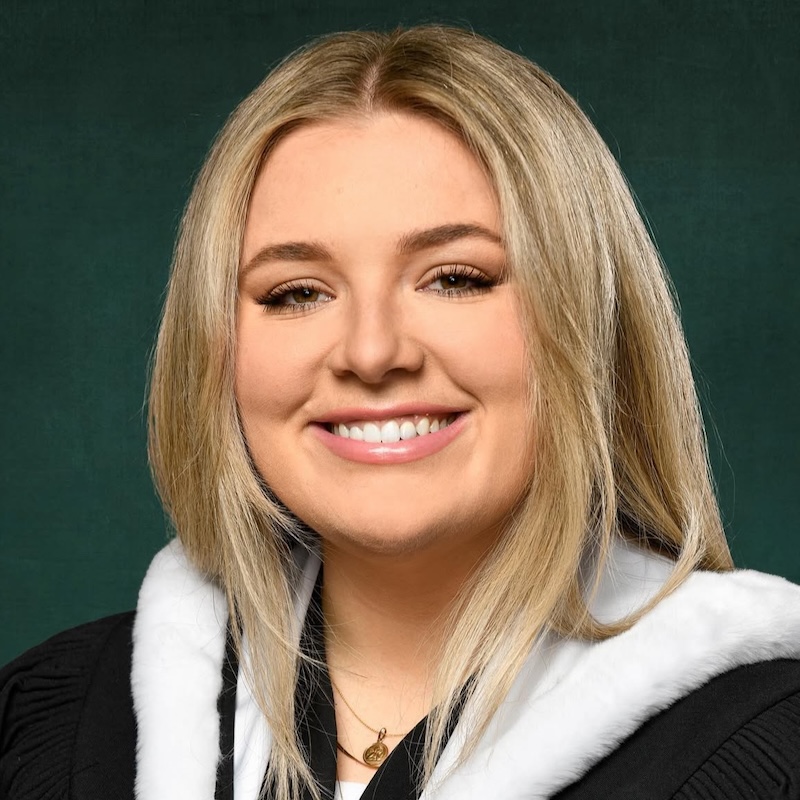In January of 2020, during the third year of my Bachelor of Arts degree (with a major in Sociology and Social Anthropology) at Dal, I wrote a personal essay entitled “No, I’m actually not worried about what I’ll ‘do’ with my arts degree” that was published in the Globe and Mail.
Four years and countless misadventures post-grad, I see that the very lessons I believed would help me as I entered the workforce — though perhaps not as directly employable as those learned in, say, a Commerce degree — absolutely did.
It took some time to figure out where my career would go but, in hindsight, the things I learned over the course of my degree helped me get there.
When I look back on it now, the journey to discovering what I was going to ‘do’ post-grad looked a lot like deciding my major back in first year. Philosophy? Creative Writing? Sociology? The commitment all felt a little overwhelming and a lot scarier — like whatever I chose was a life-long contract signed.
When searching for jobs, I felt those familiar feelings rise up. Advertising? PR? Journalism? On a whim, following a particularly inspiring trip to Dublin, I applied for an MFA in Creative Writing at Trinity College. I didn’t get in. I felt more lost than ever and began to wonder if that self-assuredness with which I’d written back in 2020 had been little more than naivety.
Nevertheless, I persevered, reminding myself of the things my university self had written.
So, in limbo between the retail job I’d gotten immediately post-graduation (“I just don’t want to use my brain for a while,” I’d misguidedly told anyone who’d listen) and finding my next gig, I took stock of my toolkit and used it wherever I could.
I picked up freelancing gigs for parents’ friends and local small businesses, for a short stint I joined the team of The On Canada Project (where my sociology degree came very much in handy), I began working on an unfinished-to-this-day manuscript until, eventually, something actually stuck.
People often ask me how I landed my position as a Web Content Creator at blogTO, and my usual response is some iteration of “right place, right time,” which isn’t necessarily untrue, but a whole lot more went into making me the right person for the job than mere chance.
As I wrote back in 2020, the four years I spent obtaining my BA included the opportunity to explore subjects far and beyond my major. I loaded up on everything that struck me as interesting and fit in my course schedule. History of Rock and Roll, Eastern Religions, 20th Century Philosophers, Guitar History and Techniques, even a particularly disastrous venture into physics with Understanding The Weather, all bestowed me, not only with a legendary ability to pull fun facts out whenever and wherever, but the ability to open myself up to learning and applying information of all kinds. This, I believe, is critical in what I do today.
I write about restaurants, events, bands, documentaries, news — whatever I can get my hands on, really. And, admittedly, I frequently find myself knowing very little about the subject of my next article before I start writing — but the flexibility of my degree has helped me be able to quickly adapt to new information and ways of thinking.
My advice to prospective students considering a Bachelor of Arts, or even those currently studying one, is this: Worry less about what jobs could possibly materialize out of your degree. The world of work is vast and changing every day, and there are positions out there you never could have imagined ever existed.
Use your elective credits to learn about something that really interests you, or even just intrigues you, and see where that goes. Take the chance to join societies and clubs that align with your values and interests, because what you’re taught in the classroom is only a fraction of what you actually learn in university.
Most importantly: don’t freak out.
It can all too frequently feel — especially when you’re surrounded by people who are studying more seemingly employable degrees — like you’re wasting your time. I promise you’re not. Now, perhaps more than ever, the world needs philosophers, journalists, sociologists, and political scientists just as much as it needs engineers and businesspeople. There’s a place for you, too.

